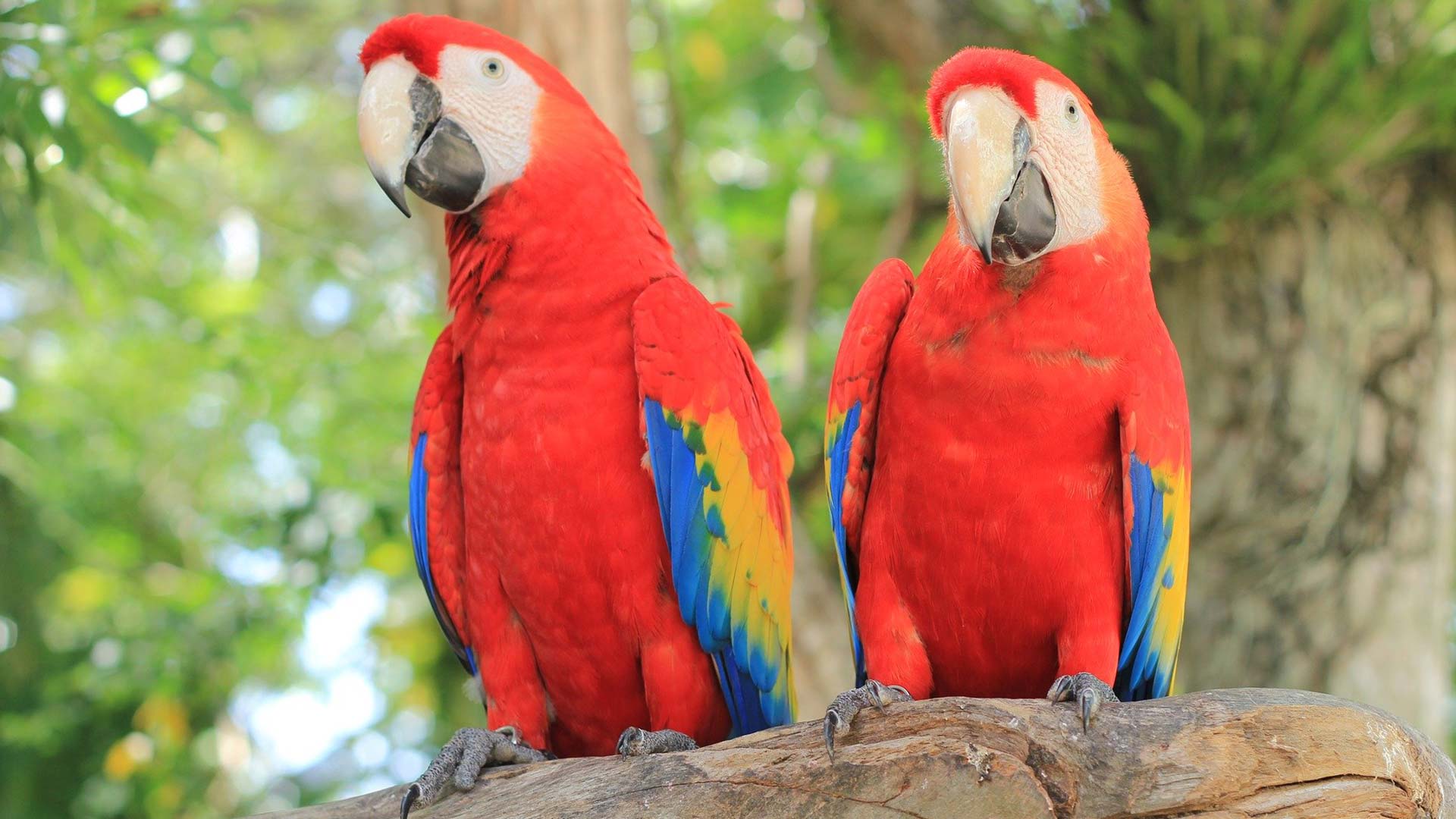At The Belize Zoo, the scarlet macaw exhibit is a proven “must see” for all visitors. The bright beauty of a scarlet macaw is unmatched in the parrot world. Next to their exhibit is, unfortunately, a sad recount of environmental misbehavior which has led to a steady decrease of scarlet macaws in Belize. Studies in the past few years have indicated that the birds which remain face a gloomy future.
Recently, someone pointed out, “But the birds are still there”. As the person in Belize who studied the population of scarlet macaws in the Upper Macal River valley for a period of five years , which also involved many meetings and discussions with other biologists, it seems timely to put into writing our current scarlet macaw scenario.
A small and struggling population of scarlet macaws is still trying to keep the Chalillo dam area as a home. This population has decreased from the “dam” changes. What did people think the remaining birds would do? Fly into trees and commit macaw-suicide because their traditional home area, where they have bred and foraged for hundreds of years, was systematically altered and mangled?
Research has repeatedly shown that a macaw will return to a nesting site, even though it is sub-standard, and attempt to use it as the “chosen place” for their reproduction attempts. Occurring now is that a decreased population of these rare birds has become geographically isolated and, in addition, is faced with poaching and further habitat loss. Scientific-based warnings about this very probable parrot-situation, one which would likely lead to local extirpation, were aired and spoken about during the Chalillo dam debate. Few cared to listen.
Saving the scarlet macaw for a future in the wild will take a complex toolbox of conservation strategies, and much, much more than simply “monitoring the remaining population.” Serious captive-breeding for re-introduction in protected and strongly guarded areas is a good start. But a difficult one, and sadly, unless the difficult route is chosen, the forthcoming generations of Belizeans will only know a scarlet macaw from a zoo visit. Rather than see the jewel tarnished, our nation needs to provide a strong semblance of pride and protection for our important natural resources.




